

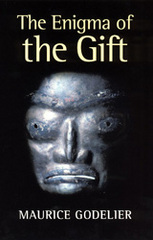
Beginning with an analysis of the seminal work of Marcel Mauss and Claude Lévi-Strass, and drawing on his own fieldwork in Melanesia, Godelier argues that traditional theories are flawed because they consider only exchangeable gifts. By explaining gift-giving in terms of sacred objects and the authoritative conferral of power associated with them, Godelier challenges both recent and traditional theories of gift-giving, provocatively refreshing a traditional debate.
Elegantly translated by Nora Scott, The Enigma of the Gift is at once a major theoretical contribution and an essential guide to the history of the theory of the gift.

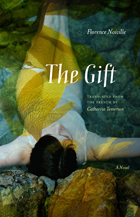
The narrator’s mother looms large in her psyche. Labeled “eccentric” or “Italian,” her mother in fact suffered from what was later found to be manic depression. Without understanding the disease, the family treated the unpredictable ups and downs of her condition as they struck. During periods of paralyzing depression she was hospitalized, and the family felt abandoned. During periods of manic productivity and overdrive, she was a dedicated pharmacist, an exemplary homemaker, and an unusually knowledgeable gardener.
This sparse novel draws the portrait of a grand and unforgettable lady, loving and unable to love at once. Her bequest is as much a material one as it is an emotional one, and, the author surmises as she glances at her own daughters, a genetic one.
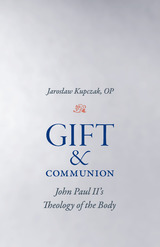
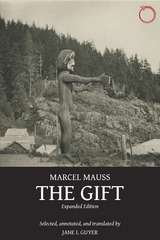
Included alongside the “Essay on the Gift” are Mauss’ memorial accounts of the work of Émile Durkheim and his colleagues who were lost during World War I, as well as his scholarly reviews of influential contemporaries such as Franz Boas, J. G. Frazer, Bronislaw Malinowski, and others. Read in the context of these additional pieces, the “Essay on the Gift” is revealed as a complementary whole, a gesture of both personal and political generosity: Mauss’ honor for his fallen colleagues; his aspiration for modern society’s recuperation of the gift as a mode of repair; and his own careful, yet critical, reading of his intellectual milieu. The result sets the scene for a whole new generation of readers to study this essay alongside pieces that exhibit the erudition, political commitment, and generous collegial exchange that first nourished the essay into life.
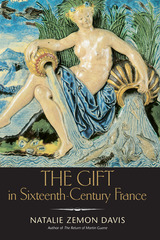
Must a gift be given freely? How can we tell a gift from a bribe? Are gifts always a part of human relations—or do they lose their power and importance once the market takes hold and puts a price on every exchange? These questions are central to our sense of social relations past and present, and they are at the heart of this book by one of our most interesting and renowned historians.
In a wide-ranging look at gift giving in early modern France, Natalie Zemon Davis reveals the ways that gift exchange is crucial to understanding alliance and conflict in family life, economic relations, politics, and religion. Moving from the king’s bounty to the beggar’s alms, her book explores the modes and meanings of gift giving in every corner of sixteenth-century French society. In doing so, it arrives at a new way of considering gifts—what Davis calls "the gift register"—as a permanent feature of social relations over time. Gift giving, with its own justifications and forms in different periods, can create amity or lead to quarrels and trouble. It mixes the voluntary and the obligatory, with interested bribery at one extreme and inspired gratuitousness at the other.
Examining gifts both ethnographically (through archives, letters, and other texts) and culturally (through literary, ethical, and religious sources), Davis shows how coercive features in family life and politics, rather than competition from the market, disrupted the gift system. This intriguing book suggests that examining the significance of gifts can not only help us to understand social relations in the past, but teach us to deal graciously with each other in the present.
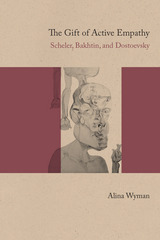
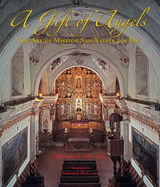
Mission San Xavier del Bac is a two-century-old Spanish church in southern Arizona located just a few miles from downtown Tucson, a metropolis of more than half a million people in the American Southwest. A National Historic Landmark since 1963, the mission’s graceful baroque art and architecture have drawn visitors from all over the world.
Now Bernard Fontana—the leading expert on San Xavier—and award-winning photographer Edward McCain team up to bring us a comprehensive view of the mission as we’ve never seen it before. With 200 stunning full-color photographs and incisive text illuminating the religious, historical, and motivational context of these images, A Gift of Angels is a must-have for tourists, scholars, and other visitors to San Xavier.
From its glorious architecture all the way down to the finest details of its art, Mission San Xavier del Bac is indeed a gift of angels.
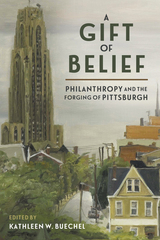
Philanthropy has long been associated with images of industrial titans and wealthy families. In Pittsburgh, long a center for industry, the shadows of Carnegie, Mellon, Frick, and others loom especially large, while the stories of working-class citizens who uplifted their neighbors remain untold. For the first time, these two portraits of Pittsburgh philanthropy converge in a rich historic tapestry. The Gift of Belief reveals how Pittsburghers from every strata, creed, and circumstance organized their private resources for the public good. The industrialists and their foundations are here but stand alongside lesser known philanthropists equally involved in institution building, civic reform, and community empowerment.
Beginning with sectarian philanthropy in the nineteenth century, moving to scientific philanthropy in the early twentieth century and Pittsburgh Renaissance-era institution-building, and concluding with modern entrepreneurship, twelve authors trace how Pittsburgh aligned with, led, or lagged behind the national philanthropic story and explore how ideals of charity and philanthropy entwined to produce distinctive forms of engagement that has defined Pittsburgh’s civic life.
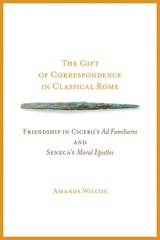
Amanda Wilcox offers an innovative approach to two major collections of Roman letters—Cicero’s Ad Familiares and Seneca’s Moral Epistles—informed by modern cross-cultural theories of gift-giving.
By viewing letters and the practice of correspondence as a species of gift exchange, Wilcox provides a nuanced analysis of neglected and misunderstood aspects of Roman epistolary rhetoric and the social dynamics of friendship in Cicero’s correspondence. Turning to Seneca, she shows that he both inherited and reacted against Cicero’s euphemistic rhetoric and social practices, and she analyzes how Seneca transformed the rhetoric of his own letters from an instrument of social negotiation into an idiom for ethical philosophy and self-reflection. Though Cicero and Seneca are often viewed as a study in contrasts, Wilcox extensively compares their letters, underscoring Cicero’s significant influence on Seneca as a prose stylist, philosopher, and public figure.
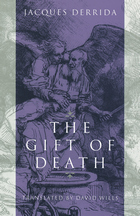
A major work, The Gift of Death resonates with much of Derrida's earlier writing and will be of interest to scholars in anthropology, philosophy, and literary criticism, along with scholars of ethics and religion.
"The Gift of Death is Derrida's long-awaited deconstruction of the foundations of the project of a philosophical ethics, and it will long be regarded as one of the most significant of his many writings."—Choice
"An important contribution to the critical study of ethics that commends itself to philosophers, social scientists, scholars of relgion . . . [and those] made curious by the controversy that so often attends Derrida."—Booklist
"Derrida stares death in the face in this dense but rewarding inquiry. . . . Provocative."—Publishers Weekly
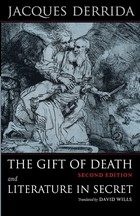
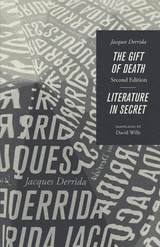
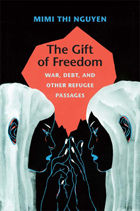

At first encounter, these partbooks yield no clues concerning their provenance, their composers' names, or the reasons for their dispatch to England. In his search for this information, Professor Slim used the musicologists' customary tools, namely, biobibliography, concordances, and textual and musical analysis. But he also used bibliographers' tools not always employed by musicologists: watermarks, bindings, script, orthography, and illuminations.
As a result of his efforts, the author was able to identify nearly all the works' composers and the manuscripts' expert illuminator. He also presents a detailed description of the binding process and the probably background of the scribe, places the political and social references in the works, and determines the route the volumes may have taken after they left Henry's library.
By placing the date of the partbooks' arrival in England around 1528, Professor Slim suggests that the musical culture of the early Tudor court was less French than has hitherto been thought. Indeed, the presence of the partbooks in Henry's library makes them the earliest evidence of the Italian madrigal in England. The author also provides new and significant data on the artistic and historical position of Philippe Verdelot, the partbooks' most extensively represented composer.
Volume I of this set contains two parts. The first, dealing with the manuscript itself, contains the history of the partbooks, information on their origin, composers, texts, and their importance as a gift to Henry VIII. Part II, dealing with the music, discusses general musical traits, the motets, the madrigals, the results of collation, and the appearance of some of the Newberry motets and madrigals in other sources.
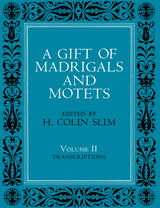
At first encounter, these partbooks yield no clues concerning their provenance, their composers' names, or the reasons for their dispatch to England. In his search for this information, Professor Slim used the musicologists' customary tools, namely, biobibliography, concordances, and textual and musical analysis. But he also used bibliographers' tools not always employed by musicologists: watermarks, bindings, script, orthography, and illuminations.
As a result of his efforts, the author was able to identify nearly all the works' composers and the manuscripts' expert illuminator. He also presents a detailed description of the binding process and the probably background of the scribe, places the political and social references in the works, and determines the route the volumes may have taken after they left Henry's library.
By placing the date of the partbooks' arrival in England around 1528, Professor Slim suggests that the musical culture of the early Tudor court was less French than has hitherto been thought. Indeed, the presence of the partbooks in Henry's library makes them the earliest evidence of the Italian madrigal in England. The author also provides new and significant data on the artistic and historical position of Philippe Verdelot, the partbooks' most extensively represented composer.
In Volume II, Professor Slim has transcribed the music of the thirty motets and thirty madrigals for modern performance. The parts are cantus, tenor, bassus, and quintus et VI; the altus partbook is missing. Concordant sources provide the altus parts for all but four of the motets and six of the madrigals. These ten have been composed by Professor Slim. Notes at the end of each selection provide variant readings for both music and text. The Latin texts of the motets, the Italian of the madrigals, and an English translation of each appear at the end of the volume.
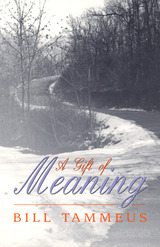
Because of the peculiar momentary nature of journalism, not every column can stand the test of time. But many—even those about events nearly gone from the public consciousness--contain lasting truths. A Gift of Meaning is a collection of those lasting truths from Bill Tammeus, a columnist for the Kansas City Star.
Each piece reveals Tammeus's attempt to wrestle eternal meaning from the events and experiences that sweep us along day by day.
I stopped by a homeless shelter the other day to see someone I know. As I waited, I felt rather conspicuous in my suit and tie. In fact, the friendly man at the information desk asked me if I was a pastor. I chuckled.
But as I sat in the lobby waiting to see the man I came to check on, I was struck again by what may be the most difficult of all human tasks: empathy. That is, the challenge of really putting ourselves in the shoes of others.
In the end, A Gift of Meaning is not just a presentation of found meaning, but also a call to readers to stop and think for themselves. This book is an invitation to breathe deeply and seek out the meaning of what the world heaves at us each day. It is an offering of insights that will provide fresh ways of comprehending things readers thought they already understood.
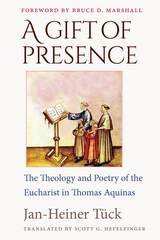
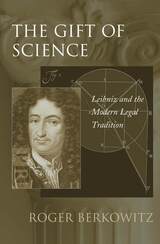
The front pages of our newspapers and the lead stories on the evening news bear witness to the divorce of law from justice. The rich and famous get away with murder; Fortune 500 corporations operate sweatshops with impunity; blue-chip energy companies that spoil the environment and sicken communities face mere fines that don't dent profits. In The Gift of Science, a bold, revisionist account of 300 years of jurisprudence, Roger Berkowitz looks beyond these headlines to explore the historical and philosophical roots of our current legal and ethical crisis.
Moving from the scientific revolution to the nineteenth-century rise of legal codes, Berkowitz tells the story of how lawyers and philosophers invented legal science to preserve law's claim to moral authority. The "gift" of science, however, proved bittersweet. Instead of strengthening the bond between law and justice, the subordination of law to science transformed law from an ethical order into a tool for social and economic ends. Drawing on major figures from the traditions of law, philosophy, and history, The Gift of Science is not only a mesmerizing and original intellectual history of law; it shows how modern law remains imprisoned by a failed scientific metaphysics.
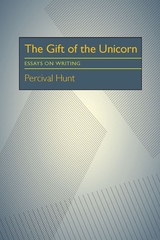
The ability to write well is difficult to gain. To write beyond the ordinary—beyond the clear and effective paragraph or book—needs craft, patience, and practice. And it has always required something more: genius, magic, a supreme gift. Professor Hunt in The Gift of the Unicorn binds the two—the craft and the gift—under a unifying light, showing both writer and reader the how and why and perhaps of good writing and of the writing that has gained, in Hunt’s words, “the friendship of time” and is called literature.
Essays include: “Beginning,” “The Web of Writing,” “The Telling,” “Spontaneity,” “Disciplined Writing,” “The Story,” “The People in the Book,” “Of Rules, Again,” and “Ending.”
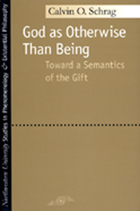
Schrag draws with grace, ease, and precision upon the history of Western metaphysics, from Plato and Aristotle through Nietzsche and Heidegger. Most important to his central question of God as "otherwise than Being," however, are such influential post-Heideggerian thinkers as Jean-Luc Marion, Jacques Derrida, and Emmanuel Levinas. Schrag's inquiry engages these thinkers at a serious level and also expands recent discussions by relating them to the work of figures hitherto overlooked or underplayed, most notably Paul Tillich.
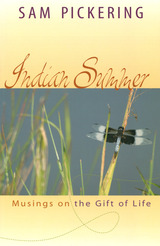
Returning to Nova Scotia every summer contributes to the illusion of smooth continuance, each summer not the first thread in a new fabric but another button on a cardigan, perhaps looser than buttons below but still familiar and comfortable. Every summer the songs of white-throated sparrows bounce from scrub like novelty tunes from the fifties. Early in the morning ravens grind woodenly. . . . No matter how slowly I jog, on the headland butterflies spring from my feet in clumps, first azures and orange crescents, then wood nymphs, and finally over the lowlands near the Beaver River outlet cabbage whites spiraling, dizzy with mating.
Indian Summer is the newest collection of personal essays by Sam Pickering. In typical Pickering fashion, he seeks to capture the gift of living. He brings to the page again his family, students, and a wealth of country characters who live in places that exist only in his imagination and who wander through the stories he tells.
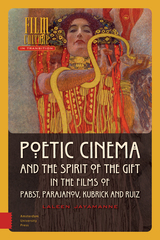
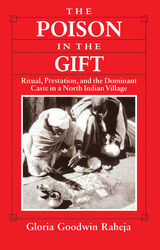
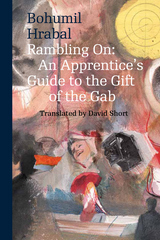
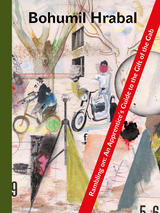
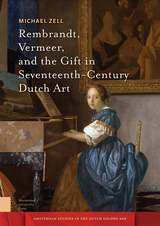
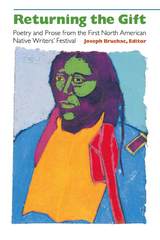
The anthology includes works from every corner of the continent, representing a wide range of tribal affiliations, languages, and cultures. By taking their peoples' literature back to them in the form of stories and songs, these writers see themselves as returning the gift of storytelling, culture, and continuance to the source from which it came. In addition to contributions by 92 writers are two introductory chapters: Joseph Bruchac comments on the current state of Native literature and the significance of the festival, and Geary Hobson traces the evolution of the event itself.
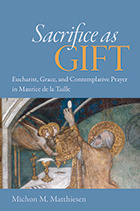

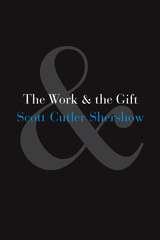
Ranging from Marx and Derrida to Friedrich Hayek and Alvin Toffler, Scott Cutler Shershow here explores the predictions of political thinkers on both the left and the right that work is fundamentally changing, or even disappearing; the debates among anthropologists and historians about an archaic gift-economy that preceded capitalism and might reemerge in its wake; contemporary political battles over charity and social welfare; and attempts by modern and postmodern artists to destabilize the work of art as we know it.
Ultimately, Shershow joins other contemporary thinkers in envisioning a community of unworking, grounded neither in ideals of production and progress, nor in an ethic of liberal generosity, but simply in our fundamental being-in-common. What results is a brilliant intervention in critical theory and social thought that will be of enormous value to students of literary criticism, anthropology, and philosophy alike.
READERS
Browse our collection.
PUBLISHERS
See BiblioVault's publisher services.
STUDENT SERVICES
Files for college accessibility offices.
UChicago Accessibility Resources
home | accessibility | search | about | contact us
BiblioVault ® 2001 - 2024
The University of Chicago Press









